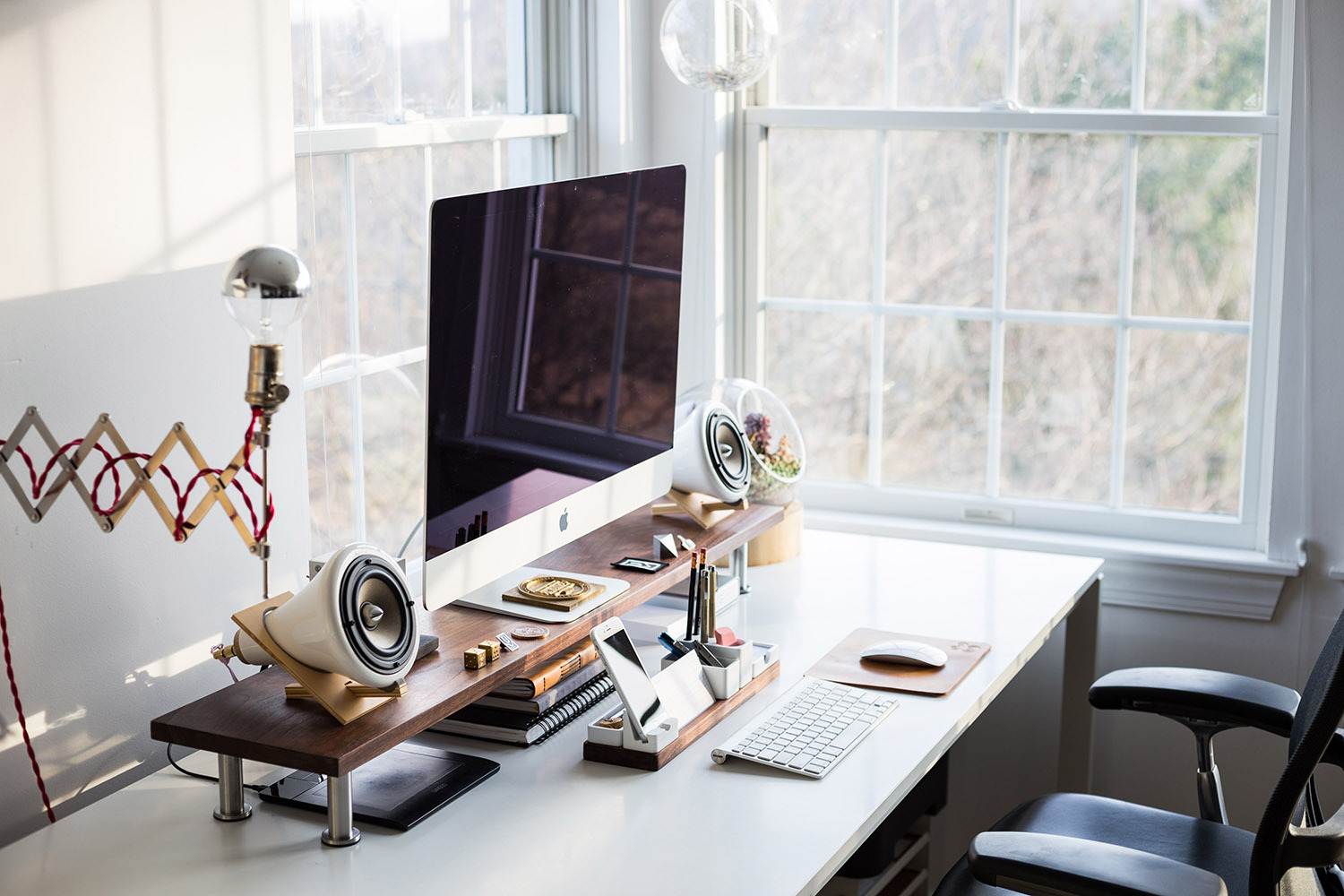[su_dropcap style=”simple” size=”5″]T[/su_dropcap]o be successful, a home office needs to be both functional and efficient. You are going to be working in this environment for several hours each day so it is important that you make it as comfortable as possible. You can design a practical and comfortable home office by taking a few steps towards finding the right space, furnishing it, and making it attractive and efficient.
Separate your workspace from the rest of your home. Create a barrier between yourself and the rest of your household. Store everything you need for your work in your office so you can be efficient in your space. Keep everything work related out of the rest of your home to help you maintain a work-life balance. Even if you live alone, you need a space that can help you create a work-life balance.
Make the most of your space. If you live in an apartment or small home without an extra room, you can still set up an efficient home office. Designate any separate space you can exclusively for work. This is better than working from your couch or bed.
- Carve out a workspace in your closet by removing the doors and installing a small table, chair, shelves, and good lighting.
- Put a desk, chair, shelving, and light sources in a corner of your kitchen or another room in the house.
- Avoid working from your bedroom to maintain the best sense of work-life balance.

Choose surroundings that are conducive to your work. Find a space with a window if natural light is important to you. Put your office in an area of your home where the temperature will be comfortable for you all day. Find an office space with a door if you need it in order to shut yourself off from the rest of your home.
Set up your desk. When you choose your desk, focus on your posture. Your back should be straight or slightly reclined and your shoulders should be relaxed. Find a desk that lets you sit with your thighs and forearms at right angles to the floor. Your head should be level and you should look slightly down at your monitor or reading material.
- Consider a stand-sit desk if you like the freedom to both stands and sit while you work.
Get a chair that supports you properly. Find a chair that is about 17-19 inches or about 43-48 centimeters deep with good lower back support. You might consider a chair with height-adjustable lumbar support. Position your chair so that your feet are on the floor or get a footrest to keep your knees parallel to the floor.
- Your chair should let you line up your wrists with your forearms.
- Make sure you can comfortably shift your position in your chair throughout your workday to help with circulation.
- You can use bookshelves or you can hang shelving.
- Use your space wisely by hanging filing and storage systems on your walls or the backs of doors.
- Create a filing system that makes sense so you can retrieve papers easily.
[su_quote cite=”Install bookshelves and other storage containers. To keep all of your supplies, references, and work materials in your home office, you will need bookshelves and other storage. Start by grouping the same types of work materials together. Next, find the shelves and other types of storage that will fit the materials you need for your work. “][/su_quote]
Invest in the right computer equipment for your needs. At a minimum, you will need a computer with sufficient memory and processor speed to ensure you can work efficiently. Make sure to run and update your antivirus software regularly. Schedule regular system and file backups.
- Organize your cords and peripheral equipment to keep your space clutter-free.
- Consider a multifunction scanner, printer, copier, fax device if you have a small space or do not need this equipment frequently.
Source: Wikihow




